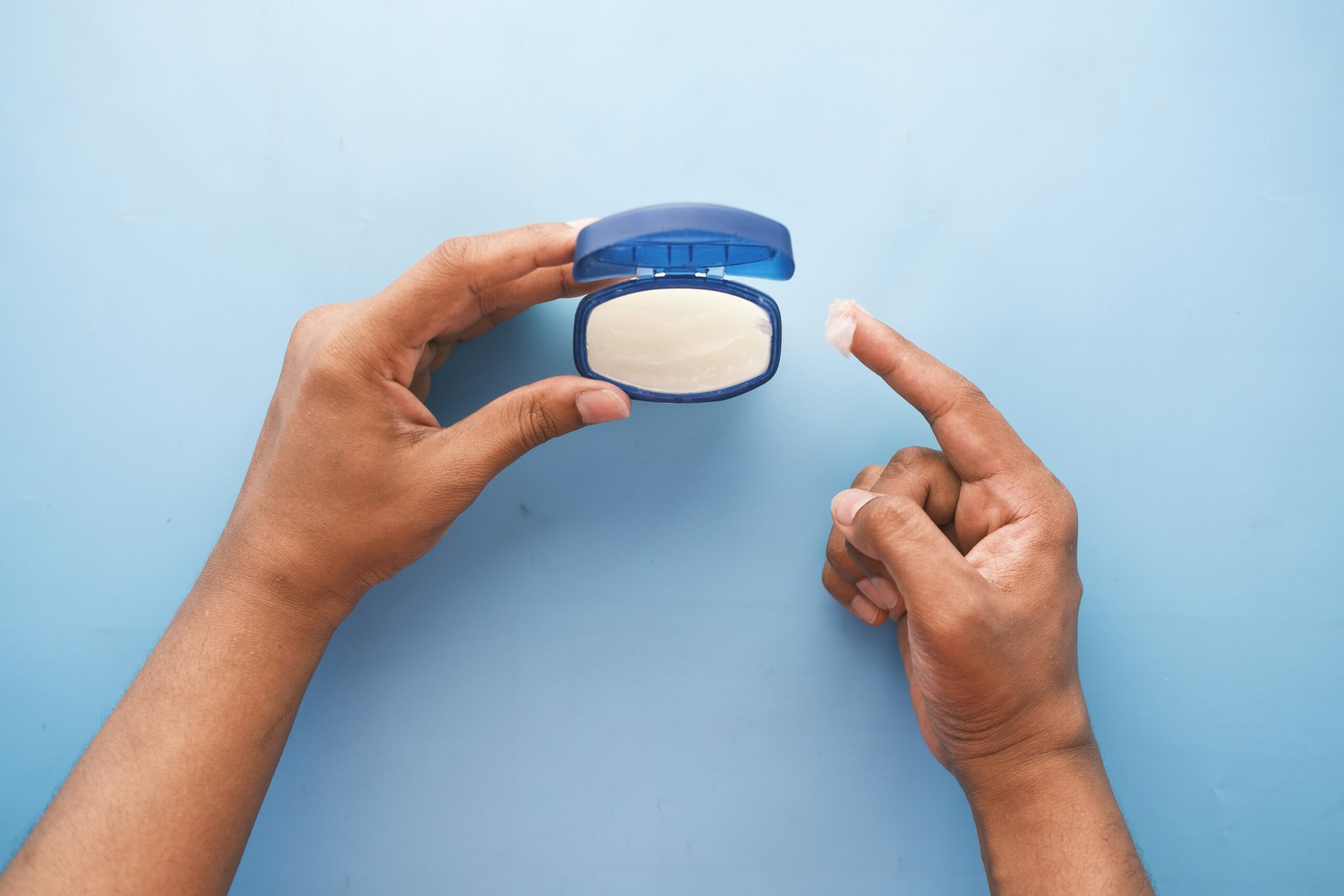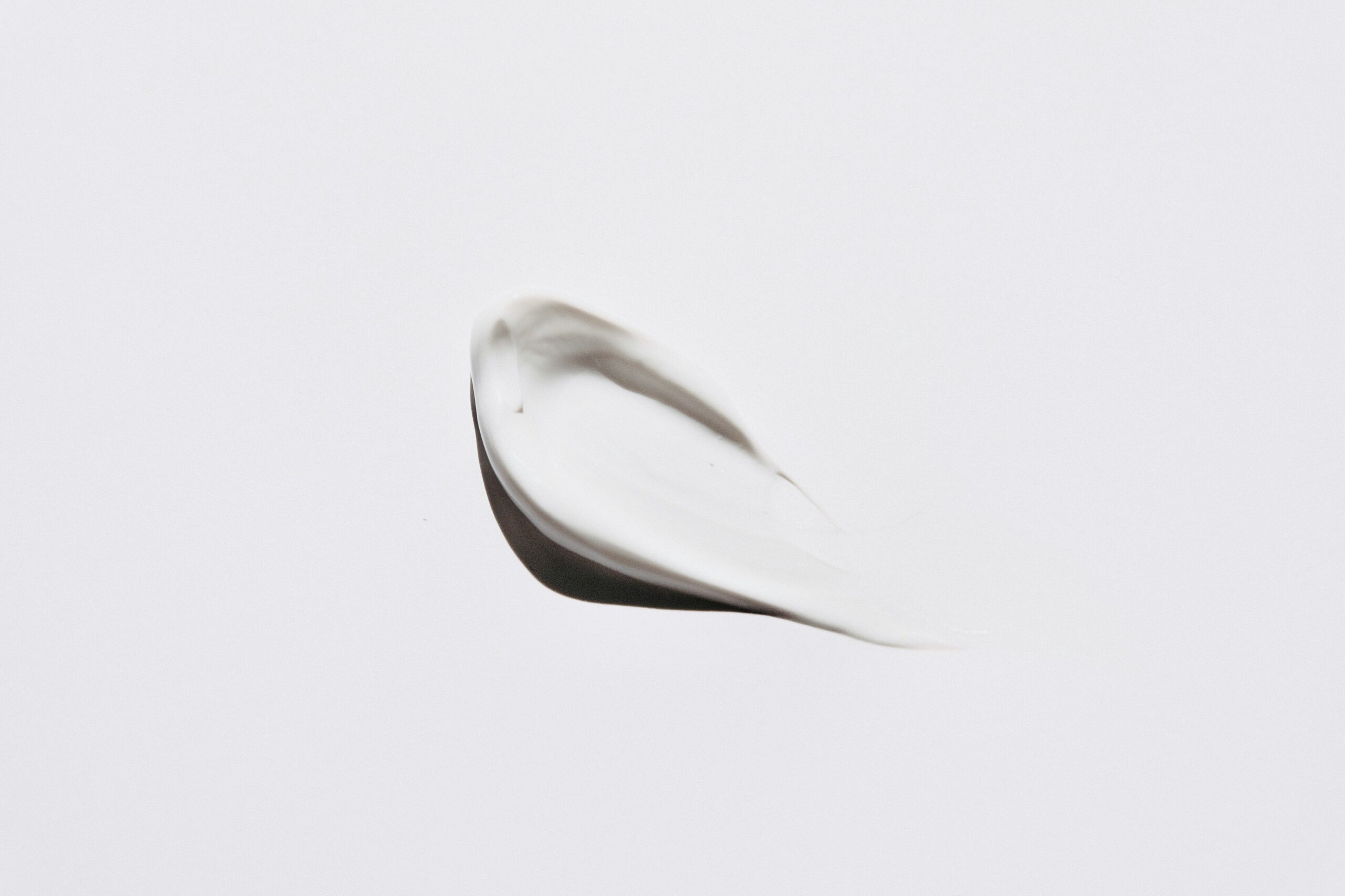Dry skin is a symptom that signifies a type of dehydrated skin that its external characteristics can recognize. Dehydrated skin needs to be sufficiently moisturized because it lacks lipids. The lipids found in the stratum corneum are made up of various components.
Lipids have critical protective functions, including protecting against the evaporation of water from the skin. Dry skin is more vulnerable to irritants. The direct cause of dry skin is a disruption of the protective barrier. Various factors can disrupt the lipid layer.
Dehydrated skin is usually not a dangerous condition. It is a common dermatological problem that can be alleviated. Proper care of dry skin can restore smoothness and moisture to the skin. However, in some cases, the symptoms of dry skin can indicate various diseases. The most common treatments for dry skin include substances rich in emollients and humectants. Changing your habits is also worth avoiding irritating and drying out your skin. Find out all about dry skin. Learn about ways to moisturize to restore your skin's healthy appearance.

Dry skin is a common dermatological condition. In medical terms, it is called xeroderma![]() . The condition results from various factors. The leading cause is the disruption of the outer layer of the skin, which should protect the skin from external factors. The stratum corneum is the skin's protective part, which comprises hydrolipids
. The condition results from various factors. The leading cause is the disruption of the outer layer of the skin, which should protect the skin from external factors. The stratum corneum is the skin's protective part, which comprises hydrolipids![]() that inhibit water loss.
that inhibit water loss.
Lipids are made up of various components, which include ceramides, cholesterol, and free fatty acids. The individual components maintain the skin's softness, firmness, and elasticity. Thus, when the lipid barrier is disrupted, various symptoms can occur related to skin dryness and increased susceptibility to irritation.
Various factors can disrupt the barrier. Causes can, therefore, include:
Climate and weather can influence the skin's condition. Dry air is the most unfavorable factor for the hydrolipidic layer. Too little humidity outdoors or indoors can contribute to excessive skin dryness. Dry spaces include rooms that are air-conditioned or heated. In addition, skin exposed to the sun can become dry.
A polluted environment can also adversely affect the condition of the skin. Exposure to wind, cold, and air pollution can contribute to dry skin. The skin is particularly negatively impacted by polluted air, which has stripped the skin of its protective barrier. When the skin is deprived of its hydrolipidic film, it is more susceptible to toxic particles. This makes it difficult to breathe. In addition, free radicals penetrate the skin, damaging cell membranes and collagen. As a result, the skin is highly prone to irritation.

Various unfavorable habits have a powerful impact on the condition of the skin. These include the use of irritating cosmetics, soaps, and washing liquids. Excessive use of cleansers, especially those with degreasing solid properties, can strip the natural oils from the skin's surface, causing it to dry out. Not only too infrequent washing of the skin, but too frequent care can negatively affect the skin.
Frequent use of hot baths can contribute to moisture loss from the epidermis. Another factor associated with dry skin is diet. Insufficient water can cause dehydration and affect the overall moisture content of the skin. In addition to this, various types of ingredient deficiencies can increase the risk of dry skin.
Medications are substances that can have various side effects. In some cases, they can contribute to the symptoms of dry skin. It is essential to know that some antibiotics, diuretics, acne preparations, and high blood pressure drugs cause dry skin, as their effects involve an increase in the amount of water excreted from the body. Also, some medications that cause hormonal changes can contribute to the symptoms of dry skin.
Hormonal changes can affect the skin. Among other things, estrogen deficiency can contribute to it. Estrogen levels decrease with age, which makes the skin more susceptible to drying out, and it loses elasticity. In addition, progesterone is a potent stimulus for the sebaceous glands responsible for sebum production. Its deficiency makes the skin very dry, and hair may fall out. Therefore, hormonal changes occurring during pregnancy, menopause, or puberty, among others, can affect skin condition and hydration. Also, in the case of hypothyroidism, a deficiency of thyroid hormones causes excessive dryness of the epidermis.
Dry and rough skin can be a symptom of various skin and systemic diseases. With diseases, there are usually additional symptoms as well. Skin diseases that cause dryness include psoriasis. In addition, allergic atopic dermatitis also causes dry and irritation-prone skin. Other conditions that can cause dry skin include diabetes. High glucose levels in the body can result in a loss of moisture in the skin, which is one of the leading causes of dry skin. Therefore, if the problem of dehydrated skin persists for a long time, we advise you to seek medical help. A medical consultation and diagnostic tests can effectively identify the cause of dry skin.

Healthy skin requires a water content of 10-15%![]() ; if water levels fall below this, dry skin problems occur. The skin on everybody's body can become dry. Dry skin is relatively easy to recognize. A deficiency of hydrolipids results in characteristic symptoms. Additional symptoms indicative of irritation may also occur due to dry skin. Symptoms of dry skin include:
; if water levels fall below this, dry skin problems occur. The skin on everybody's body can become dry. Dry skin is relatively easy to recognize. A deficiency of hydrolipids results in characteristic symptoms. Additional symptoms indicative of irritation may also occur due to dry skin. Symptoms of dry skin include:
The roughness of its surface can identify rough skin. Dehydrated skin loses its smoothness. Rough skin is uncomfortable and dry to the touch. The symptom of rough skin often occurs after shaving, which has irritated the outer protective layer of the epidermis too much and led to dryness.
Another symptom indicative of dry skin is skin tightness. Healthy skin should be smooth and elastic. Collagen fibers and elastin are responsible for the proper tension of the skin. A deficiency of these components contributes to dryness and unpleasant skin tension. As a result of a lack of elasticity, wrinkles can also develop on the skin.
Dehydrated skin can cause flaking, i.e., a layer of dead skin is removed and can flake off on its own. Healthy skin also flakes regularly, as it is a natural regenerative process. However, excessive flaking of the skin, which results in an unsightly appearance, indicates skin that is too dry. Flaking often occurs due to mechanical trauma or overexposure to the sun's rays.

Dry skin is more exposed to irritants, so dry areas can often become red. This is especially true for people with sensitive skin types, who are generally more susceptible to external factors. Redness due to dry skin is usually not intense, taking on a slightly pinkish color. Darker shades and patches can indicate various conditions, such as local allergies.
In some cases, dry skin can cause unpleasant symptoms of itching. When the water content of the epidermis drops below normal levels, the skin becomes dehydrated and sensitive. However, if the dryness and itching are more intense and regular and red patches appear, the cause of dry skin is most likely an inflammation or other skin condition.
Dry skin does not usually pose a health risk. The condition usually requires special care to rebuild the skin's protective layer. However, in cases where care does not work, it is worth seeking medical advice. A persistent symptom of dry skin may be a sign of disease. Then, it will be necessary to implement specialized treatment, after which the dry skin symptoms should cease or be alleviated.
It is also important to avoid drying factors, such as the sun or dry air. Also, care should be taken when choosing skin care products, as some may contain ingredients that cause allergic reactions. In such cases, dry skin symptoms may be exacerbated and further irritated.

The products used to treat dry skin are largely emollients, which help to rebuild the lipid layer. Emollients are dermocosmetics that have substances that help keep the skin moisturized. Emollients increase the skin's water level, reducing symptoms such as tightness and flaking. Various ingredients can be found in emollient preparations that also minimize irritation. Oil-based![]() products are recommended because they can better deal with dry skin than water-based cosmetics.
products are recommended because they can better deal with dry skin than water-based cosmetics.
Humectants are another product that reduces the symptoms of dry skin. The process of humectant retains water in the skin, which prevents water loss and dryness. Humectants include hyaluronic acid![]() , now used in various skin care products. Glycerine
, now used in various skin care products. Glycerine![]() also counts as a humectant, supporting the skin's natural defense mechanisms and preventing moisture loss. Glycerine is considered the most robust humectant ingredient, as it can draw water from the deep layers of the skin.
also counts as a humectant, supporting the skin's natural defense mechanisms and preventing moisture loss. Glycerine is considered the most robust humectant ingredient, as it can draw water from the deep layers of the skin.
Exfoliation, also known as peeling, can be beneficial for dry skin. Exfoliation is an essential skincare treatment that involves exfoliating dry skin. After such a skincare treatment, the skin is smoother and softer. After exfoliation, the skin should be moisturized using a moisturizer. Exfoliation will improve the absorption of the ingredients and rebuild the hydrolipidic film. However, only some people should use exfoliation.
In some cases, the treatment may cause additional irritation, exacerbating the symptoms of dryness. Those with sensitive skin are at risk. Exfoliation's overly strong mechanical agents can then traumatize the skin. An enzymatic peel, which has less irritating effects, is also recommended for delicate skin.

Another method of combating dry skin uses hydrophilic matrices, forming a protective coating. As a result, it can effectively prevent water loss. One of the components of hydrophilic matrices is collagen![]() , a significant element for the skin. Collagen is an essential substance for maintaining the skin's condition. However, using collagen in the type of ointment or cream does not prove effective, as the deeper layers of the skin need to absorb collagen.
, a significant element for the skin. Collagen is an essential substance for maintaining the skin's condition. However, using collagen in the type of ointment or cream does not prove effective, as the deeper layers of the skin need to absorb collagen.
Therefore, an oral collagen hydrolysate can be used. The supplement is a collagen protein that aids the regeneration of damaged tissues and generally improves skin condition. However, it is essential to remember that everybody should consult their doctor for a supplement. It is also worth remembering that a topical moisturizer is quicker and more effective for dry skin problems.
To restore healthy-looking skin, change your habits and avoid irritants and drying factors. Among other things, experts recommend less frequent bathing. Being in water does not moisturize the skin at all; on the contrary, it dries it out. Therefore, you should avoid long-term hot baths if you have a dry skin problem. Instead, using lukewarm water in moderation is recommended.
Replacing cleaning detergents with more gentle and non-irritating ones is also advisable. Choosing detergents based on the pH level![]() corresponding to your skin condition is advisable. On the other hand, if the cause of dry skin is too dry air in your room, it is worth using humidifiers.
corresponding to your skin condition is advisable. On the other hand, if the cause of dry skin is too dry air in your room, it is worth using humidifiers.
It is also worth taking care of dietary habits to support epidermal regeneration and avoid drying out the skin. Most importantly, it is essential to keep your body hydrated properly. If you want your skin to be healthy and hydrated, drink water regularly and avoid dehydration. Many scientific studies also confirm the role of foods in affecting skin conditions. Following dietary recommendations can positively impact the skin's barrier function.
Among other things, studies have shown the benefits of probiotics![]() such as lactobacillus species. Naturally occurring bacteria improve skin hydration and the building of protective proteins. It was also noted that omega-3 fatty acids
such as lactobacillus species. Naturally occurring bacteria improve skin hydration and the building of protective proteins. It was also noted that omega-3 fatty acids![]() affect the skin barrier, reducing skin inflammation. However, additional research in this area is needed to confirm the ingredients' effectiveness.
affect the skin barrier, reducing skin inflammation. However, additional research in this area is needed to confirm the ingredients' effectiveness.
Dry skin is a common dermatological problem that affects aesthetics and causes unpleasant symptoms. The skin dries out due to a breach in the hydrolipidic barrier. Usually, dry skin is not a health-threatening problem. Factors that breach the skin barrier include, for example, unfavorable weather conditions such as too-dry air. However, in some cases, persistently dry skin may indicate a disease.
Diseases in which dry skin occurs include psoriasis or diabetes. In cases where dry skin persists over a long-term period and moisturizing skin care has no effect; it is worth visiting your doctor, who will order specialized tests. The most common treatments for dry skin include substances rich in emollients and humectants. Changing your habits is also worth avoiding irritating and drying out your skin.